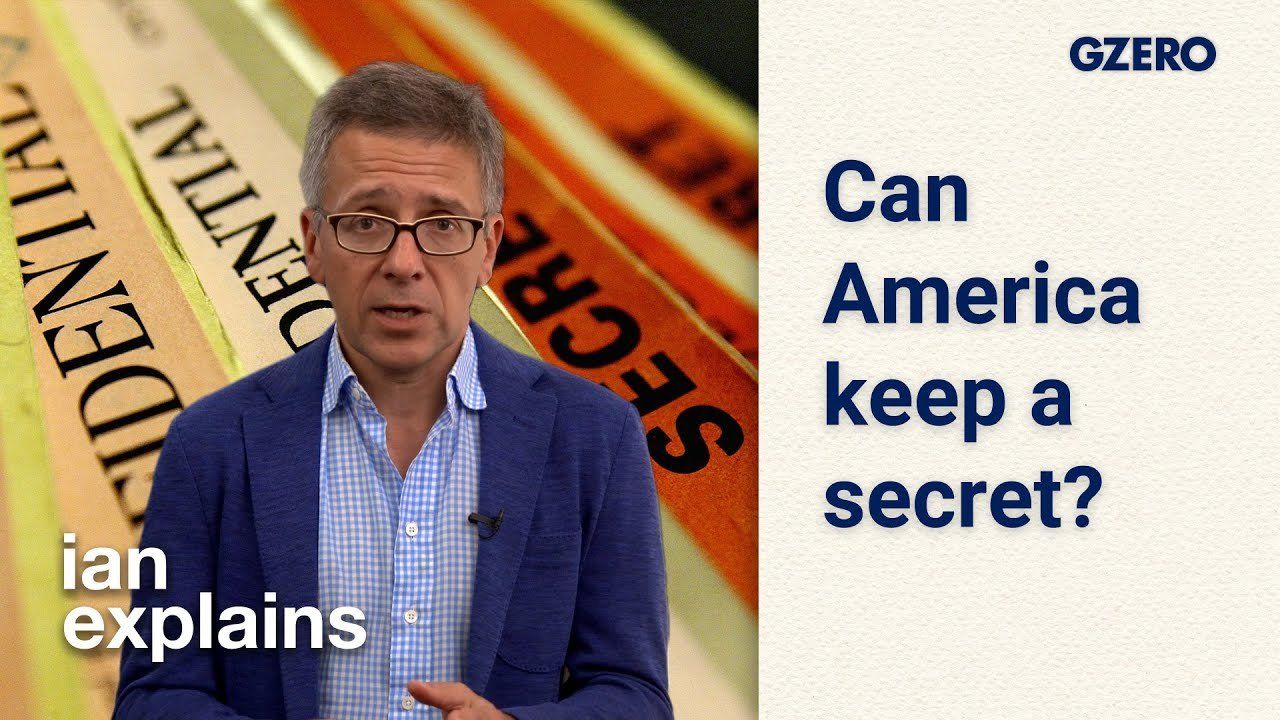Ian Explains
Ian Explains: Why America is bad at keeping secrets

Ian Explains: Why America is bad at keeping secrets | GZERO World

Here’s a secret: the US government’s system for classifying documents doesn’t work very well, and it hasn’t for decades. If you follow the news, you’ve likely seen stories a-plenty about former President Donald Trump’s penchant for holding onto classified documents, not to mention less egregious examples like former Vice President Mike Pence and current President Joe Biden doing the same. But what you might not know is that the US government has a tortured history of overclassifying information, sometimes with disastrous results.
The 9/11 Commission found that a lack of information-sharing between agencies like the CIA, the FBI, and the NSA prevented the US government from foiling the terrorist attacks that day. A key reason for that failure was the over-classification of information. An estimated 50 million documents are classified each year, though the exact number is unknown—not because it’s classified, but because the government just can’t keep track of it all. In the words of former US Solicitor General Erwin Griswold, some “secrets are not worth keeping.”
It’s difficult for the American public to know what its government is up to if so much of its work is classified. It also forces journalists to weigh the risks of disclosing information to the public against the risk of prosecution under the Espionage Act.
There are, of course, plenty of good and important reasons to classify information. We don’t want Kim Jong Un or Ayatollah Khamenei to get their hands on US nuclear codes. But beyond national security concerns, a big contributor to over-classification comes down to incentives—If you’re a government employee, the risk of classifying something that doesn’t need to be classified is low, but if you un-classify something that you shouldn’t, you're in trouble. It’s also about control. Classification protects the government against revelations of mistakes, false predictions, or other embarrassments that the rest of us like to call “accountability.”
Watch Ian Explains for the full breakdown, and for more on the US, watch GZERO World with Ian Bremmer on US public television and at gzeromedia.com/gzeroworld.
Somewhere in the Donbas region, Ukrainian soldier Artem Bondarenko says he hasn’t slept through the night in months as he defends Eastern Ukraine.
In this Quick Take, Ian Bremmer warns that US military strikes on Iran are “looking increasingly imminent” as diplomacy appears to stall.